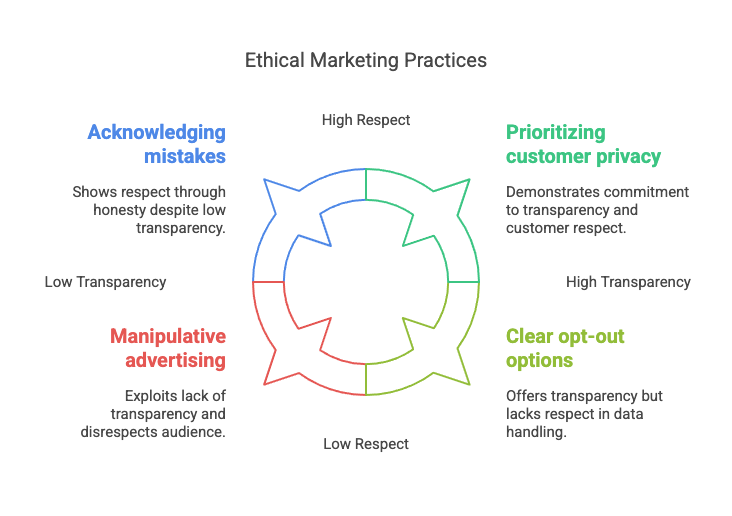People don’t trust marketers anymore, and I can’t say I blame them.
From manipulative marketing campaigns to rampant spyware, the reputation of marketing firms and ad networks has never been worse. As privacy watchdogs and regulatory agencies close in on the data-driven economy, people are growing more cognizant of how their data is being bought, sold, and used.
Factor in that modern consumers care more than ever about corporate values, and you have a compelling case for greater ethics across your organization, including and especially within your marketing department.
Today, we’ll discuss the three foundations of an ethical approach to marketing.
Consent Is Everything
The European Union’s General Data Protection Regulation introduced a comprehensive framework for data privacy. Familiarize yourself with it. That framework will serve as a guide for your own data collection and processing practices.
If a user has not given explicit consent for you to use their information in a particular way, don’t use it. If you make it clear to your customers that your priority is their privacy rather than your profit margins, they will see your brand in a far more positive light. And it won’t make market insights as difficult as you might expect.
People are concerned about businesses using their data without permission. So long as you give them the opportunity to opt out, many customers will be perfectly willing to share their information.

Prioritize Transparency and Accountability
As you may have already guessed, transparency is a core value of ethical marketing. At no point in time should your audience feel they don’t have a complete picture of your brand’s identity. At no point in time should they that they are being lied to.
More importantly, if your business makes a mistake, you must acknowledge it. Then, apologize sincerely. Next, explain the steps you are taking to fix the problem.
Finally, outline what you will do to prevent it from recurring. Indeed, the key difference between businesses that suffer long-term damage from bad PR and those that recover successfully is their willingness to work with their customers.
They’re willing to admit to their own fallibility and make reparations for it.
Don’t Be Manipulative
We have left the most important pillar of ethical marketing for last. Treat your audience with respect. Advertisements should intrigue, delight, and entertain.
They should never play on people’s ignorance, insecurity, or fear. Such psychological coercion might drive short-term conversions. But in the long-term, people will come to associate your brand with the negativity of your advertisements.
Moreover, they won’t have much in the way of brand loyalty. When a competitor that holds them in higher regard comes along, they’ll abandon your business.




